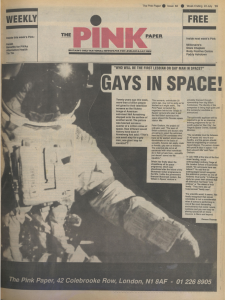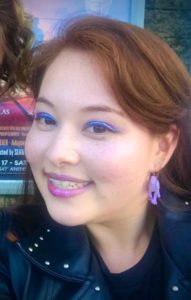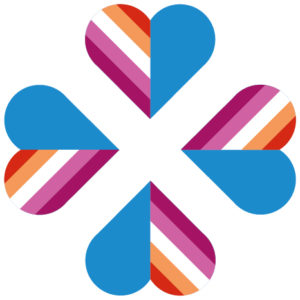bulletin-magazine: Reflecting on an unusual Pride month
The past few months have seen us have to wave goodbye to a number of events, instead finding ways to celebrate them separately and behind closed doors. Despite this, our Staff Pride Network still gathered (virtually) to mark Pride month, and to support each other during this strange time. Here, Jonathan MacBride, Co-Convenor of the Network, chats to bulletin about adapting their Pride plans to a digital environment.
What has it been like organising the celebration of Pride during lockdown?
We’ve been glad to have the resources to host a virtual, Prideful, event to bring community members together to reflect, commemorate and celebrate.
Have you managed to take everything online successfully? Has it felt the same hosting events virtually?
There have certainly been varying levels of success and hiccups but we have continued our regular social events and increased our online offering with alternating weekly yoga and Qi Gong (Body Clock Flow). Weekly Wednesday online lunchtime catch-ups for all members have replaced monthly lunchtime events held at different campuses on the 2nd, 3rd and 4th Wednesdays. Our monthly Evening Social on the 1st Friday has moved online and drinks are much cheaper! Where conversations would have bounced around in person at these social events, people online want to contribute to the conversation but will often find themselves starting to talk just as someone else does. It’s different, it’s learning how to make it work, and that’s ok. Rather than fight it, we’ve embraced it and even organised an Animal Crossing event for IDAHOBT (International day against Homophobia, Biphobia, and Transphobia) where some members joined in on their Nintendo Switch and others watched on Twitch.
How has the Network managed to successfully connect and support each other when they’re unable to meet face to face?
Everyone on the committee and the entire volunteer team have continued to work together to deliver fantastic events, maintain an active social media presence and create interesting communications, while members have responded with generous event feedback, and liking, sharing and retweeting our communications. It motivates us to keep working with the University, attending strategy meetings and organising ever more for our LGBT+ colleagues and allies.
Can you expand a bit more of some of the events you had to alter to fit these lockdown circumstances?
Our Diversifying Wikipedia event on the 25th anniversary of Pride marches in Scotland changed from face-to-face training in a WRB University room to Collaborate for the training, Collaborate side rooms for extra help, and a Discord for other support and questions for our special guests. I’d never heard of Discord before this and now I organise activism on one Discord and chat to friends while experimenting with acrylic paint on another! Event participants created new Wikipedia pages for LGBT+ authors, publishers, and historic and current Scottish LGBT+ bookshops (Lavender Menace Bookshop and Category Is Books, if you want to look up their handiwork!). The AGM in August (date TBC) will be online for the first time too!
Will you be continuing with any of these once things are back to normal?
What’s normal? I expect we’ll maintain a fully inclusive approach, making events accessible in-person and online. We’ll adapt and do our best.
Anything else you’d like to mention?
Pride Month is a time where our community comes together to celebrate the progress we have made towards being included and accepted and ending discrimination. We must acknowledge that the Pride movement is built on the shoulders of Black trans women activists like Marsha P Johnson and we are still fighting today to end racist, homophobic, biphobic and transphobic oppression.
How have you been celebrating Pride month this year? Let bulletin-magazine know in their comments here: https://blogs.ed.ac.uk/bulletin-magazine/2020/06/30/reflecting-on-an-unusual-pride-month/
Article from bulletin-magazine: https://blogs.ed.ac.uk/bulletin-magazine/2020/06/30/reflecting-on-an-unusual-pride-month/

















